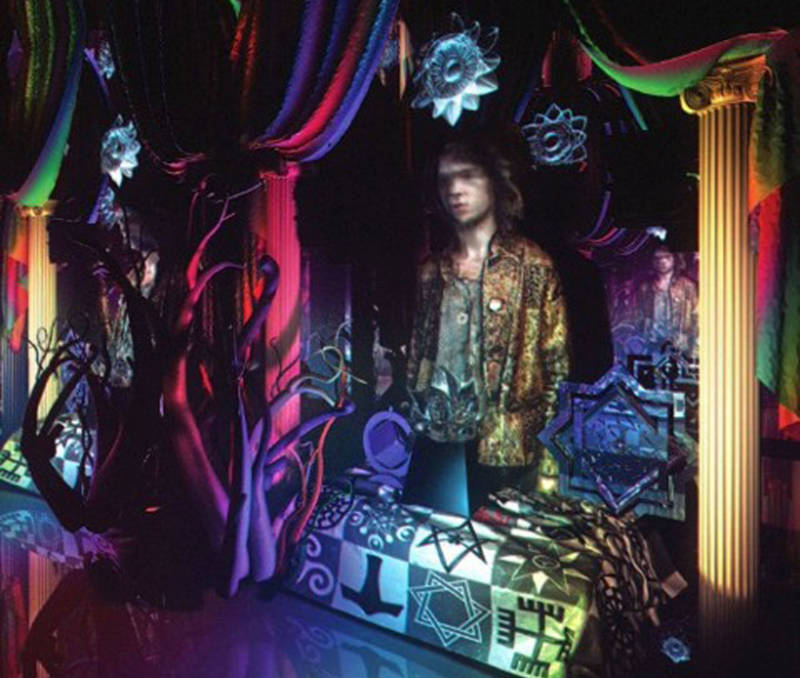As for the space themes, well, let’s not make too much of it. Some lyrics are certainly spacey, but in a good way. Take this from the extended closing soundscape “Aboroun”:
The gibberish of the stars
Corporealizes our words
What we say is mirage
What we mean is the truth
Intergalactic sentiments from a man of Earth. Or perhaps a man who fell to Earth.
With the new release from the Album Leaf, here we are, as the title puts it, “Between Waves,” sitting in that moment of calm/exhilaration/relief as one great rush has passed, but with anticipation of the next one about to crash down.
And here we are, as a song title puts it, “Wandering Still,” though which definition of the second word you use can give different meaning to the phrase: Is it still as in “ongoing,” as in continual movement, always seeking? Or is it as in “at rest,” the title now taking on a Zen tone of being at once moving and unmoving?
Either works for the latter, and by extension for the album. The instrumental (as are most of the album’s eight songs) at first evokes the miniatures Eno interspersed throughout his 1975 album “Another Green World,” then growing a little twitchier, restless even, as it goes on, an electronically enhanced soundtrack for a nice walk in the country. And when a trumpet-like synth line comes in for a bit, it almost sounds like an homage to Vangelis’ slow-motion-run-on-the-beach theme to the movie “Chariots of Fire.”
San Diego’s Jimmy LaValle, the creator and mainstay of the Album Leaf, explores various aspects of those states of being with “Between Waves,” as he has for nearly 20 years of working under that moniker. Take a couple of earlier album titles: “An Orchestrated Rise to Fall” and “In a Safe Place.”
This is overall a moody, atmospheric album, but don’t read “moody” as “dark.” LaValle here coaxes a variety of moods throughout, rising and falling like those titular waves, from the uncertain promise of opener “False Dawn” (spiky electronic beats poking and prodding somber keyboards) to the brighter tones of “Back to the Start” (at times evoking sunrise over the desert skies of U2’s “The Joshua Tree”).
The moods are echoed, if not expanded, in the several real songs — with vocals and words and everything! “New Soul” would have slotted well alongside Tears for Fears and other aspirational mood explorers of the '80s, while “Never Far” explores its own dichotomy of distance and attachment with a yearning pledge (“I’m always part of you. I’m never far away”). And with the closing title song, LaValle’s voice is given electronic treatment to sound icy, mechanical, as he sits, solitary, contemplative — waiting for the next surge.
Speaking of waves, here’s the Tyde — the group fronted by Darren Rademaker, a mainstay of the L.A. band Beachwood Sparks in the '90s. That band was perhaps just ahead of its time with its revival of the '60s country-tinged psyche-rock of Buffalo Springfield et al, presaging such current faves as Dawes, but never quite breaking through beyond buzz-level notice.
Or maybe it just lacked such cool, sparkling pop songs as “Nice to Know You” and, yes, “Rainbow Boogie,” featured on this soon-to-be-released mini-album, “Darren 4,” the first in 10 years (and fourth overall, as you might guess from the title).
After all, who wouldn’t want to do the “Rainbow Boogie”? Not that Rademaker is breaking new ground or anything. “Ode to Islands” revives the CSN “Marrakesh Express” twin-guitar sound in an irresistible sunshine folk-rocker. “The Rights” is part “Wooden Ships,” part “Cowgirl in the Sand,” soundwise. Yeah, he remains a loyal devotee of that era, though a few of the songs advance things into the '70s or even the '80s -- and at times his somewhat pinched vocals and some snaky guitar lines might remind some of Tom Verlaine from the NYC band Television. And Bernard Butler, from ‘90s English band the Suede, adds that era/nation tone with guitars and vocals on “The Curse in Reverse.”
But “Rainbow Boogie”? Those are moves for any era.
